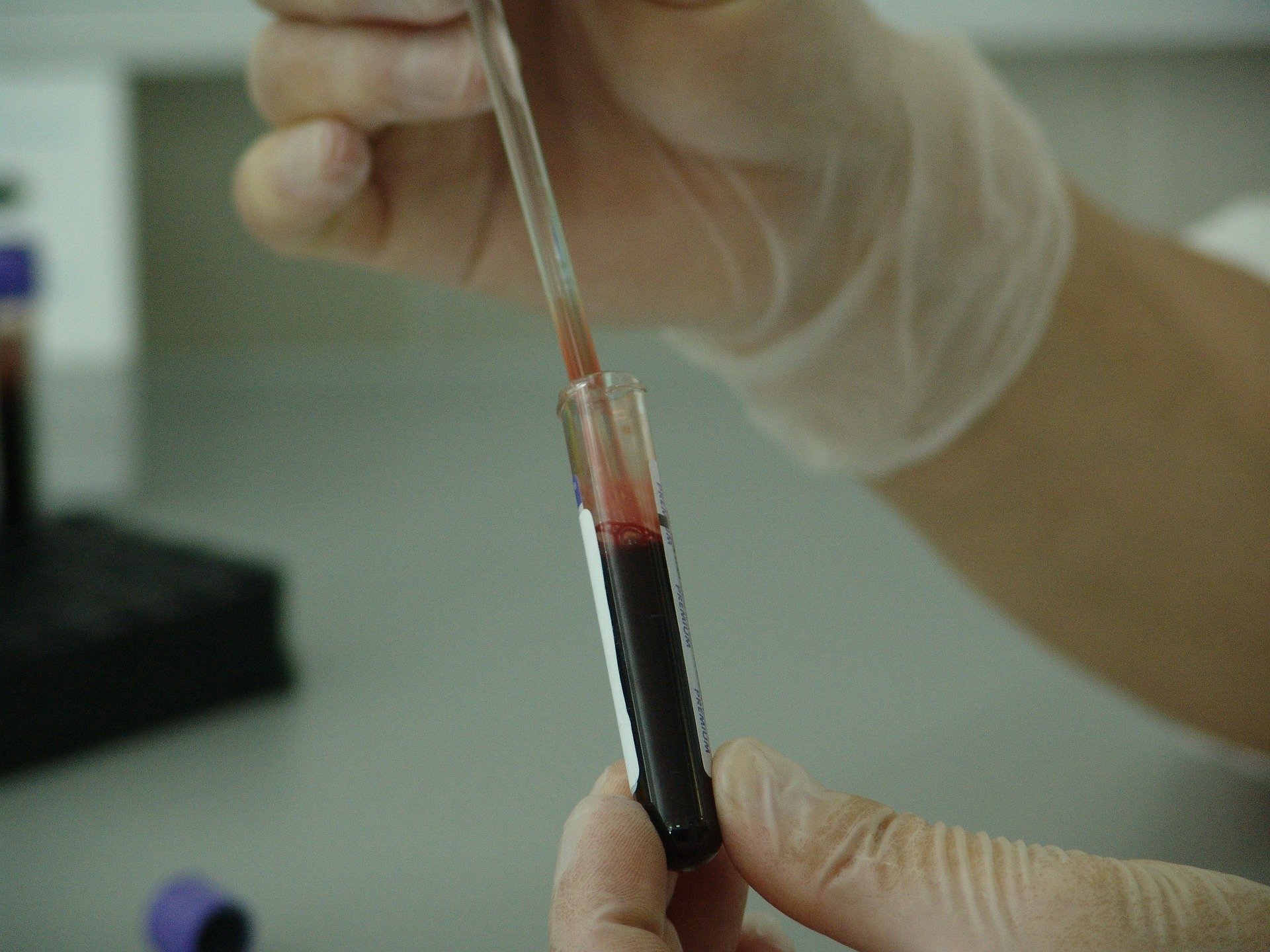Factor IX Deficiency (Hemophilia B, Christmas Disease)
What is Factor IX Deficiency?
Factor IX Deficiency commonly known as Hemophilia B is a slightly less common bleeding disorder as compared to Factor VIII. It is caused by a deficiency of clotting Factor IX.
Factor IX Deficiency affects 1 in 10,000 live male births globally. Factor IX Deficiency is four times less common than Factor VIII Hemophilia A.
Factor IX Deficiency is also known as Christmas disease because the name of the first diagnosed Factor IX Deficiency patient is Stephen Christmas.
The severity of the disease depends on the level of the remaining factor activity which has a normal range of 50-200%. Levels below 40% lead to symptoms of the disease.
- Mild Hemophilia B Factor IX Deficiency – where 6% to 39% of FIX is present in the blood. This is mild Hemophilia B and patients generally only experience bleeding episodes only after falls, traumatic injuries or surgeries. Usually mild Hemophilia B is only diagnosed after a tooth extraction, injury or surgery. In some cases, the first episodes may occur only in adulthood. Treatment is needed usually only for surgery or invasive procedures.
- Moderate Hemophilia B is Factor IX Deficiency – where the level of Factor IX in the blood is 1% to 5% of FIX is present in the blood. Patients with moderate Hemophilia A usually can have excess bleeding after injuries and surgeries, but some patients with moderate Hemophilia may have as well as present with spontaneous bleeds (bleeding with no obvious cause). Treatment is needed for surgery and procedures and if they have spontaneous bleeding may need regular therapy like patients with severe Hemophilia.
- Severe Hemophilia B/severe Factor IX Deficiency – where there is less than 1% of FIX in the blood. Patients with severe Hemophilia A have frequent spontaneous bleeding episodes. The bleeds are deep bleeds mostly in the muscles and joints.
They have delayed and severe bleeding after surgery, dental procedures. Even a minor injury can lead to excess bleeding. Patients can also have bleeding from the gastrointestinal tract, urinary tract and even in the brain. The bleed site and severity can be life threatening. They need regular and lifelong treatment with extra treatment during episodes of bleeding or for surgery
Patterns of Inheritance
The gene for Factor IX Hemophilia B is carried on the X chromosome. The disease is inherited in an X-linked, recessive manner. The mutation is in the F9 gene (Xq27.1-q27.2) coagulation Factor IX. The disease affects males and female carriers usually do not have symptoms though some carriers may have low Factor IX levels and have some increased bleeding risk. The family history is present in 60-70% of families of Hemophilia patients. In some cases, Factor IX Deficiency is due to novel mutation and there is no family history of the disease. In some cases, Factor IX is also the result of somatic mosaicism.

Image source: Pixabay
Symptoms and Diagnosis
Symptoms
Symptoms depend on the severity of the disease.
- Mild Factor IX Deficiency/mild Hemophilia B – usually noticed in childhood or early adulthood after tooth extraction, severe injuries or surgical procedures. Usually prolonged bleeding with abnormal coagulation tests – prolonged aPTT.
- Moderate Factor IX Deficiency/moderate Hemophilia B – usually noticed in early childhood. Prolonged and excess bleeding after injuries or surgical procedures. Some patients may have sudden, spontaneous bleeds without any obvious traumatic cause.
- Severe Factor IX Deficiency/severe Hemophilia B – noticed within a couple of months after birth due to spontaneous and excess bleeding. Babies may present with bumps, bruises and bleeding episodes.

Image source: Pixabay
Diagnosis
Is based on symptoms, patient’s clinical history, family history and a combination of laboratory tests and genetic tests:
- Lab workup – includes a complete blood count (CBC), coagulation tests and measurement of Factor IX in blood plasma. Coagulation tests include time taken for blood to clot – activated partial thromboplastin time (aPTT) and prothrombin time (PT). In Hemophilia A, usually PT is normal whereas aPTT is prolonged when the factor is less than 40%. Factor IX Hemophilia A should be confirmed through a clotting activity assay which can determine if the abnormal aPTT is due to a deficiency of Factor VIII or Factor IX or any other blood clotting factor deficiency.
- Molecular testing – to identify mutations in the F9 gene. Molecular testing is also necessary to determine the patient’s risk of developing neutralizing anti-factor IX antibodies known as inhibitors. Molecular genetic testing can help identify other carrier females in the family as well as support prenatal diagnosis for future pregnancies. Molecular testing may be useful to determine the patient’s risk of developing neutralizing anti-factor IX antibodies known as inhibitors.

Image source: Pixabay
Current Management
The mainstay treatment for Factor IX Deficiency/Hemophilia B patients is to replace the deficient clotting factor with clotting factor concentrates (CFC) of Factor IX (plasma derived or recombinant) is concentrated FIX product known as clotting factor. Currently, there are CFC products which are either recombinant factor products developed in labs through the use of DNA technology or plasma derived factors which are manufactured from human plasma and are viral inactivated for safety.
We also have non-factor products which activate coagulation but bypass the deficiency of Factor IX. Two products are being investigated and undergoing trials in India which are concizumab (antibody which targets a natural anticoagulant protein called tissue factor pathway inhibitor -TFPI) and fitusiran (RNA interference therapeutic – RNAi).
Lab-made or human plasma derived factor is the replacement for the low levels of Factor IX in patients. Factor therapies (plasma derived or recombinant) are infused intravenously via a vein in the arm or in some cases via a port if veins are small and difficult to access. The novel non-factor agents can be given as an injection into the skin- subcutaneously and so are easier for the patient or caregiver to give at home.
Patients with severe Factor IX Hemophilia B (less than 1% factor IX) are advised prophylactic factor replacement therapy to avoid sudden and severe spontaneous bleeds. This maintains sufficient factor levels in the blood and prevents sudden bleeding episodes.
Patients with mild Factor IX Deficiency/mild Hemophilia B will need CFC or other therapy before and after dental procedures or surgical interventions.
Around 4% of patients with severe Factor IX/severe Hemophilia B will develop inhibitors against the clotting factor contrate replacement therapy. In these cases, the body’s immune system produces antibodies against the Factor IX as it mistakes it for a foreign substance to be destroyed. Inhibitors are also known as alloantibodies. Inhibitors come in the way of effective Factor IX replacement therapy. The treatment for managing inhibitors include bypassing agents (factor concentrates that bypass the factor deficiency) to control bleeding episodes. Injection recombinant Factor VIIa (rFVIIa), and anti-inhibitor coagulant complex injections (FEIBA) are both approved for treating inhibitors in Factor IX Deficiency /Hemophilia. Allergic reactions to CFC and FEIBA may occur in Hemophilia B patients who have inhibitors. The non-factor agents are also useful in the treatment of Hemophilia patients with inhibitors. These products work the same in patients of Hemophilia with or without inhibitors.
Physiotherapy is important to maintain muscle strength to prevent injuries and to recover from muscle and joint bleeds. Good physiotherapy and rehabilitation will prevent contractures and other deformities.
Orthopedics and surgical care: good orthopedic care may involve minor procedures for synovitis and other problems. Some patients will need joint replacement surgery or surgery for trauma or other surgical problems. It is important that surgeries take place at centers where expert hematologists are present and the surgical team has good expertise and interest in Hemophilia patient care.
For managing patients with Hemophilia, comprehensive care centers with multi-speciality teams is required to prevent complications and manage these patients in a safe manner.
Investigational Therapies
Currently gene therapy is being studied as a permanent cure for Factor IX Deficiency. Gene therapy involves replacing the defective gene with a normal gene through the help of load carrying viral vectors. The normal gene will be able to produce sufficient quantities of the active enzyme to enable the patient lead a normal life without spontaneous bleeding episodes. Gene editing with CRISPR technology is also being evaluated and trials are ongoing. However, long-term safety and longer-term results are awaited.
Gene therapy is yet to reach the patient’s bedside. All information on current gene therapy trials for Haemophilia B is available at https://www.clinicaltrials.gov/

References
Description, Types, Causes, Diagnosis, Treatment
https://www.hemophilia.org/Bleeding-Disorders/Types-of-Bleeding-Disorders/Hemophilia-B
https://patient.info/doctor/haemophilia-b-factor-ix-deficiency
https://kidshealth.org/Nemours/en/parents/az-hemophilia-b.html
https://www.webmd.com/a-to-z-guides/hemophilia-b-medref#1
Etiology
https://www.orpha.net/consor/cgi-bin/OC_Exp.php?Expert=98879
Epidemiology
https://www.orpha.net/consor/cgi-bin/OC_Exp.php?Expert=98879
Gene Therapy
https://hemophilianewstoday.com/gene-therapy/
https://www.jwatch.org/na45582/2017/12/06/
Standard of care guidelines
https://www1.wfh.org/publications/files/pdf-1472.pdf
https://www.hemophilia.org/Researchers-Healthcare-Providers
https://www.rch.org.au/clinicalguide/
National Resources
Hemophilia Federation (India)
A-128, Mohammadpur (Behind Bhikaji Cama Place),
New Delhi - 110066
Email: support@hemophilia.in
Ph: +91-11-45034951/4972, +91-11-41552819
Contact Dr. Shashi Apte for any support – 098224 04983
The website of the HFI lists all the affiliated chapters according to country-wide zones: Northern Region, Western Region, Eastern Region and Southern Region. Look up the website to find your local city/town chapter.
Disease Videos
Anyone can have a bleeding disorder
Christmas disease
Keywords
Factor IX Deficiency, Haemophilia B, Clotting Factor IX, Spontaneous Bleeds, Defective Gene, F9 Gene, Coagulation, Molecular Testing, Inhibitors, Gene Therapy